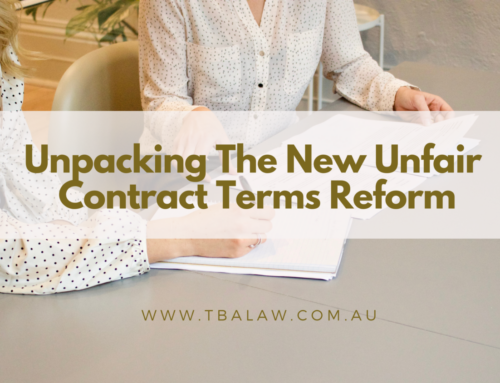Security Deposits … or is that a Bond?
Mention the word ‘Bond’ to any stranger on the street and they will no doubt respond with the numbers 007, but ask a lawyer the same thing, and we will immediately be thinking ‘security deposit’.
So what is a security deposit? And when is a security deposit required?

This blog will be looking at security deposits for retail leases of commercial properties, which differs from the legal requirements for residential leases. Unlike a bond paid as part of a residential lease, that requires lodgement with the RTBA and strict guidelines of management, commercial bonds have more flexible requirements.
A security deposit (or in layman’s terms, a bond) is a payment made by an incoming tenant to a landlord at the commencement of a commercial lease over retail premises. Security deposits are governed by the Retail Leases Act 2003, but they are not a legal requirement. Although not mandated by the Act, they offer some protection to the landlord should the tenant fail to meet their obligations, and are generally included in the majority of new leases. Amounts can vary, so the question of a security deposit should be discussed between landlord and tenant in the negotiation stage of the transaction. Whether the landlord will require a security deposit, and how much it will be, is up to the parties involved.
A landlord may only demand rent paid in advance as their form of protection against a tenant’s failure to meet their obligations, or they may ask for a sizeable security deposit. Whatever is agreed to by the parties should always be included in the schedule of the new lease. Any further stipulations on the security deposit, for example, if the parties have agreed to have it held at a certain financial institution, or if the security deposit is to be dealt with in a specific way at the conclusion of the lease, this information should also be included as a special condition in the lease. Remember, a lease will often run for years, and memories can fade over time, so agreeing to something in writing will lessen the risk to either party when the lease comes to an end.
There is no registration process for the security deposit held over a commercial property, or a specific type of bank account the money must be held in. However, there are some requirements. The money must be held in an interest earning account, and any interest earned will form part of the security deposit and must be dealt with as moneys paid by the tenant to the landlord. The landlord is required to account for the interest earned, and if the tenant has complied with their obligations during the lease, they should, at the conclusion of their lease, receive from the landlord the full amount paid plus the interest generated over the course of the lease.
But hold on there, a lease can end in a variety of ways, can it not?
The answer is yes, and a security deposit will be dealt with slightly differently in each situation. When a lease concludes at the end of its term, the deposit is paid back to the tenant along with the interest, so long as the tenant has fulfilled all their obligations under the lease. However, often a lease will be assigned, especially if the business being conducted in the premises is sold before the lease is due to expire. It is important to understand what happens to the deposit moneys in each case. Again, there are some regulations but they allow for variation depending on each parties requirements.
A lease is assigned when it is transferred to another party. This will often occur within the process of selling a business, or it may simply be that the current tenant no longer wishes to lease the premises for their chosen business anymore and assigns the lease to another party to conduct their own business. So when assigning a lease to another party the incoming tenant will pay a security deposit to the landlord, while the outgoing tenant will collect their security deposit and interest generated from the landlord. When a business is sold and the lease is assigned to the new business owner, the parties can agree for the outgoing tenant to leave the security deposit with the landlord. The incoming tenant will then gain possession of the security deposit rather than having to pay the landlord that amount. This process is relatively simple and can be adjusted for in the purchase price at settlement. However, once again, any agreement should be made in writing and agreed to by all parties to avoid problems and possible litigation in the future. If the premises are sold, the outgoing landlord will transfer the security deposit with interest to the new or incoming landlord, and the process continues. It should not alter the tenant’s rights at all. However, a tenant may wish to confirm this with the new landlord if they are concerned.
At any point in the process, from the creation of a lease to the conclusion or assignment of it, if a party, tenant or landlord, are unsure of their obligations in dealing with security deposits, they should seek clarification from a legal practitioner.
So I’m sure we can all agree, after reading the above, that a security deposit can be far more attractive than anything 007 can come up with!
[maxbutton id=”2″ ]





Leave A Comment